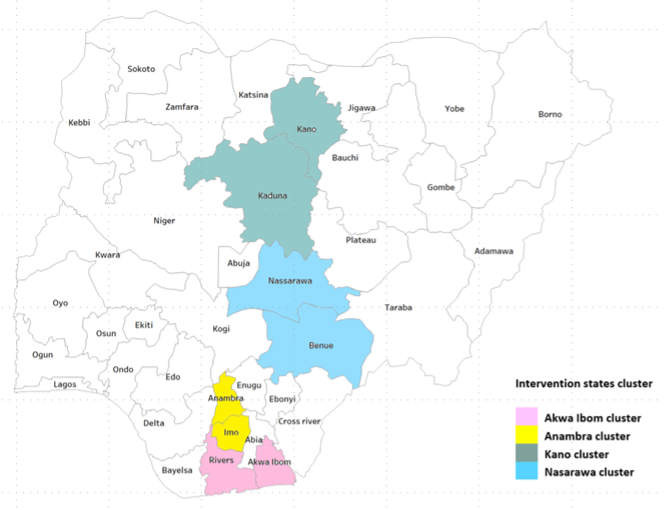KNCV Nigeria Projects
DOS TB LON Region 1 and 2 Project
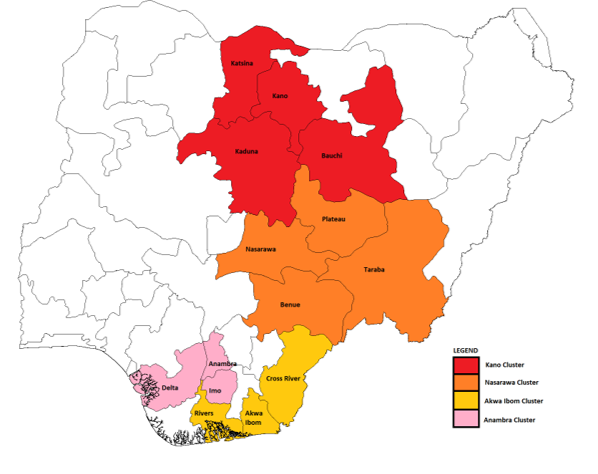
The TB LON 1 & 2 Project, implemented by KNCV Nigeria, aims to improve tuberculosis (TB) prevention,
detection, treatment, and notification across 14 states in Nigeria; Bauchi, Kaduna, Katsina, Kano, Nasarawa, Plateau, Taraba, Anambra, Akwa Ibom, Benue, Cross River, Delta, Imo, and Rivers State. The initial award period started in 2020 and lasted until 2025, with an extension from March 2025 to March 2026. The project engages 220 staff, 1008 Adhoc staff, 334 LGAs, and 1,740 private and public health facilities, communities, and civil society to expand
access to high-quality, person-centered TB services.
It strengthens health systems, reduces TB transmission, and accelerates innovative solutions with support from
a consortium of partners and service providers. The project’s four intermediate results are as follows;
- Improved access to high-quality, person-centered TB, DR-TB, and TB/Human Immunodeficiency Virus (TB/HIV) services;
- Strengthened TB service delivery platforms;
- ReducedTB disease transmission and progression and
- Accelerated TB innovations with improved impact on program implementation
KNCV Nigeria is working with a consortium of partners- two sub recipients- CCCRN and KNCV International and six strategic service package providers- Intrasat Global, IPCD, Jana Health Foundation, Diadem Consult, Public Health Concerns Ltd and TB Network. Towards meeting the project set targets, KNCV Nigeria and partners adopted a mixed model of community and facility based, health systems strengthening strategies and digital solutions to find TB cases in a Roll in, Roll on and Roll out staged approach. Roll in is in year 1 which is the planning stage, collaborations and capacity building, Roll on is the saturation stage in Year 2,3 and 4 while Roll out in year 5 is the transitioning Stage.
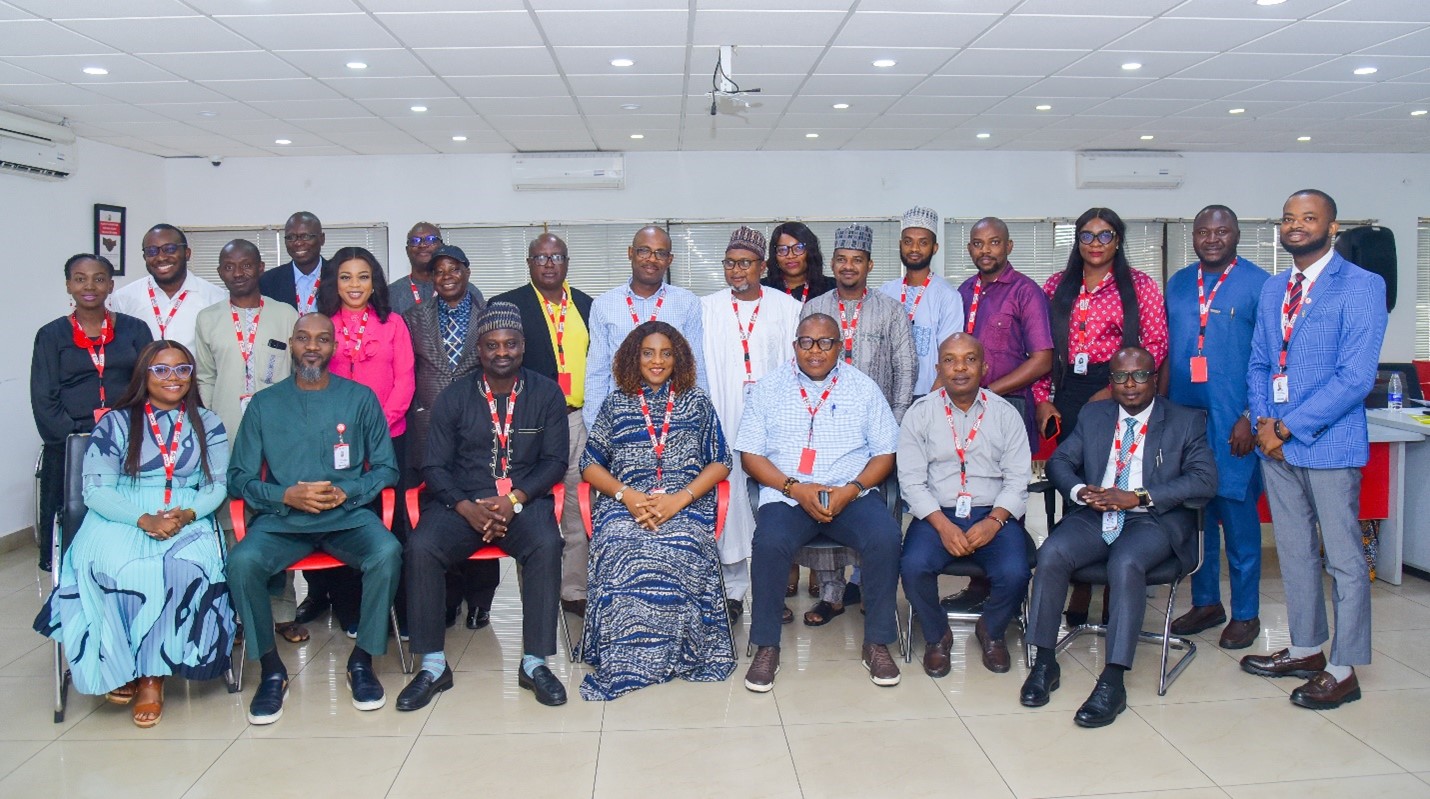
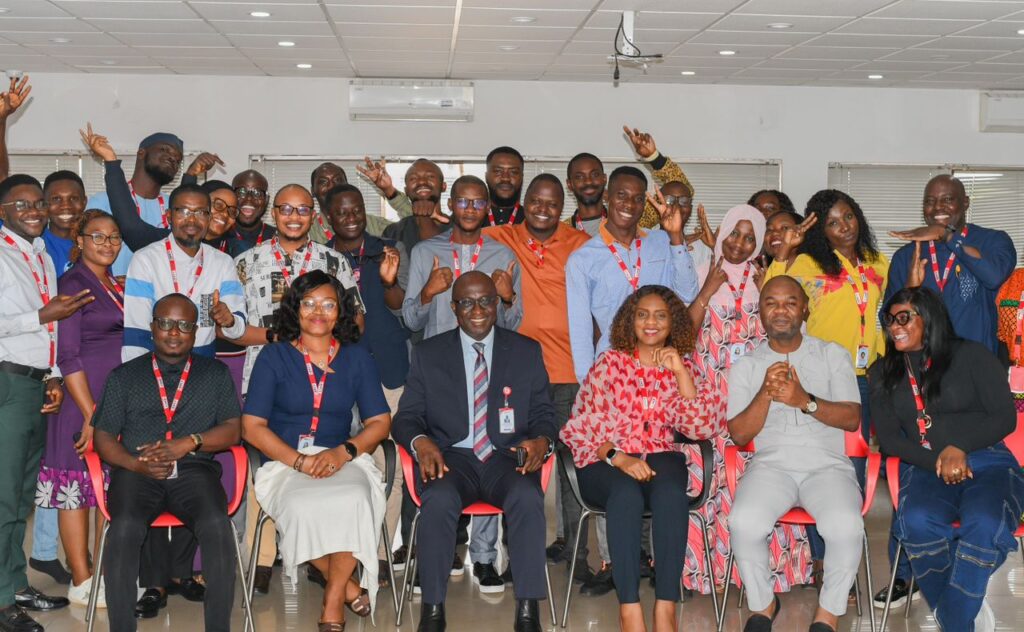
Gates Foundation Tools Evaluation Studies Project
KNCV Nigeria is implementing the Tools Evaluation Studies project, a novel initiative funded by Gates Foundation in collaboration with the National Tuberculosis and Leprosy Control Program (NTBLCP). The project aims to evaluate the accuracy and operational feasibility of new point-of-care TB diagnostics among presumptive TB clients at primary care settings and patients being screened for TB in community settings. Through this project, KNCV Nigeria will pilot two cutting-edge point-of-care diagnostic platform, PlusLife and Truenat Ultima that have the potential to transform TB diagnosis, particularly at the primary healthcare and community levels. In addition to evaluating the two diagnostic platforms, the project will explore complementary innovations such as the Raisonance AI-powered cough analysis app and digital stethoscope to strengthen TB screening at the point of care.
The project implementation states include Anambra and Kano States, leveraging a dual approach that combines field implementation and operational research. The field implementation component focuses on deploying the new diagnostic and screening tools in real-world healthcare and community settings, while the research arm will generate evidence on diagnostic accuracy, feasibility, and user acceptability.
Insights from this study will guide policy development and inform the integration of these tools into the national TB diagnostic algorithm, contributing to more efficient, accessible, and equitable TB diagnostic services across the country. Also, findings from this study will help close persistent diagnostic gaps, enhance case TB case finding, and support Nigeria’s broader goal of ending TB as a public health threat. This initiative reflects KNCV Nigeria’s continued commitment to innovation, evidence generation, and partnership-driven solutions for improving health outcomes nationwide.
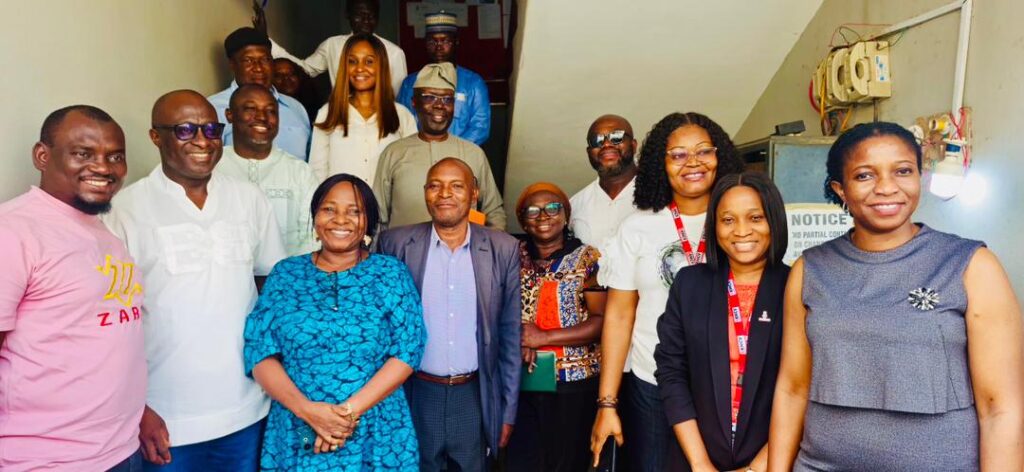
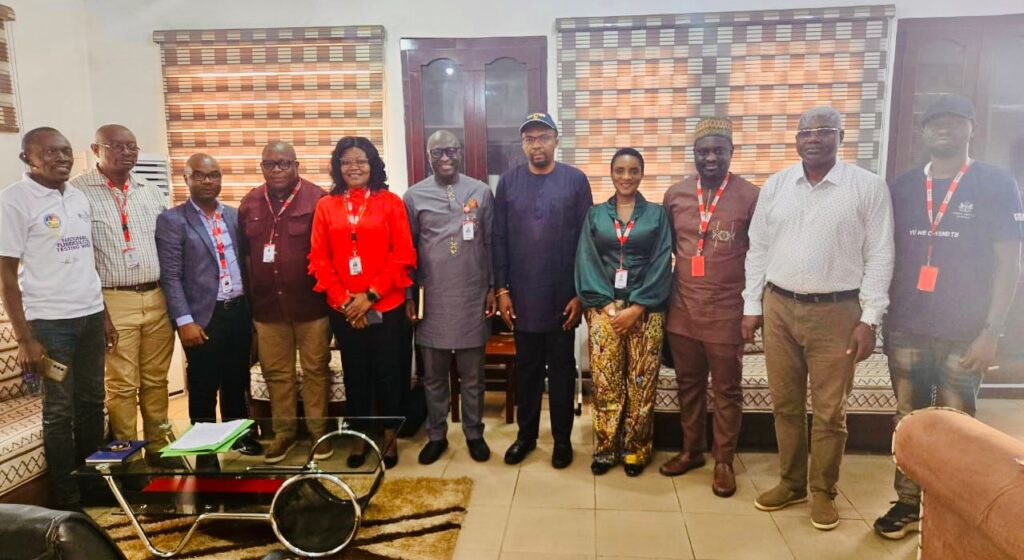
Aida: A Virtual Treatment Supporter for Tuberculosis (TB) Patients
KNCV Nigeria is excited to introduce “Aida”, a virtual treatment supporter available on WhatsApp and powered by OpenAI’s GPT-4o model. Aida is not an acronym, but a unique name chosen to represent a TB treatment companion that offers interactive, multilingual support and provides personalized information and guidance throughout the treatment journey.
Developed by KNCV Tuberculosis Foundation, Netherlands, and in collaboration with the National Tuberculosis, Leprosy and Buruli Ulcer Control Program (NTBLCP), KNCV Nigeria is piloting Aida in eight DR-TB outpatient clinics across Kano State, reaching both drug-resistant and drug-susceptible TB patients. The project has a research component designed to assess Aida’s feasibility and acceptability as a virtual treatment supporter. Through this, the project seeks to generate valuable insights on patient engagement, user satisfaction, and the role of artificial intelligence in improving adherence by strengthening self-efficacy and encouraging active participation in TB management. The findings will help refine Aida further and shape strategies for scaling AI-driven adherence technologies within the TB program.
Project implementation began after introductory meetings with the NTBLCP and the Kano State TB program, followed by training sessions for DOT officers, TB Local Government Supervisors, and state TB program representatives. The interactive training sessions provided hands-on mentorship, guiding participants on how to register patients on Aida, support their treatment journey, and make full use of the chatbot’s features. On-site onboarding sessions were then conducted to assist DOT officers with patient enrolment, while also documenting early observations from the field. To complement these activities, posters and pamphlets were distributed across implementing facilities, ensuring that patients were made aware of the benefits of enrolling on Aida.
At Dambatta General Hospital, one of the first patients enrolled shared her excitement about the Aida chatbot, noting how much convenience it brings to treatment.
“Honestly the app is very useful because it would reduce or rather it would be bring much ease to us, like we don’t need to go anywhere to ask questions, we would not need to go to the Hospital too, we can just use our phone (in real time) to process or make enquiries that we have and we would get reply immediately without any stress, so you see it would be of great help”
When probed further on if she envisages any challenges in the use of Aida, she responded as follows
“Honestly, there wouldn’t be any challenges whatsoever. It’s a relief to us and also a relief to you, the leaders, that we keep looking for you to answer our questions, so the workload on your shoulders has also been reduced.”
Aida is already beginning to show its promise, not only as a tool that eases the treatment journey for patients but also as one that reduces the burden on health workers, creating a win–win for the TB response in Nigeria.
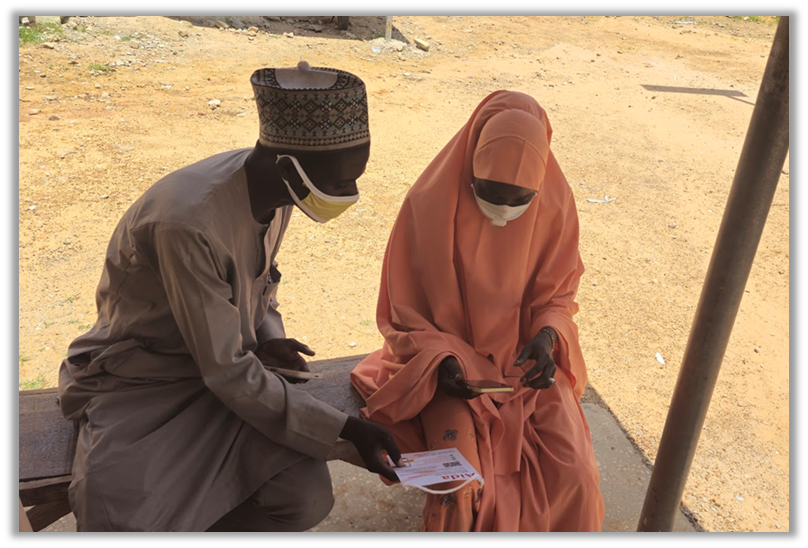
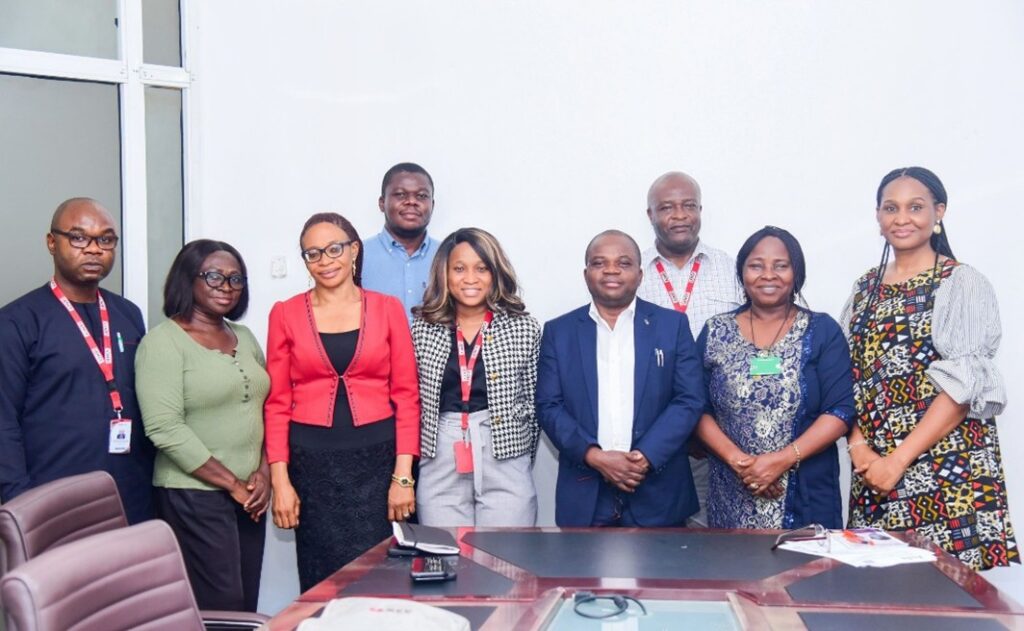
ASCENT DR-TB
The ASCENT DR-TB (Adherence Support Coalition to End TB) Project, funded by the Treatment Action Group (TAG), is addressing barriers to DR-TB treatment in Nigeria, particularly low literacy, stigma, and weak health infrastructure. With the introduction of the BPaL/M short regimen, the project emphasizes community empowerment and system strengthening to ensure effective treatment uptake.
Through a multi-pronged approach, ASCENT DR-TB engages Community Health Advocates (CHAs), Healthcare Workers (HCWs), and local leaders to raise awareness, eliminate stigma, promote early diagnosis, and support treatment adherence. The project also supports the uptake of WHO’s shorter regimen recommendations using a stage-gated approach, beginning with a country self-assessment to identify gaps and define a technical assistance (TA) plan, delivered in collaboration with the National TB Programme (NTP) and partners.
A key component of the project is community demand generation, led by TAG in partnership with Civil Society Organizations (CSOs) to build patient treatment literacy and advocate for access to shorter, patient-centered DR-TB regimens and care.
KNCV Nigeria’s Role in the Unitaid ASCENT Project
The ASCENT (Adherence Support Coalition to End TB) project is a Unitaid-funded global initiative implemented by a consortium of partners, KNCV Tuberculosis Foundation (lead partner), and the Treatment Action Group (TAG). The project is being implemented across several high TB-burden countries, including Nigeria, with the goal of improving treatment outcomes for people affected by drug-resistant tuberculosis (DR-TB) through the use of digital adherence technologies (DATs) and community-based support.
In Nigeria, KNCV Nigeria serves as the lead implementing partner, working closely with the National Tuberculosis and Leprosy Control Programme (NTBLCP), state TB programs, and other stakeholders to roll out and scale up ASCENT activities. The organization provides technical leadership, program coordination, and capacity strengthening for health workers and community advocates.
Specifically, KNCV Nigeria is responsible for:
· Leading project implementation and coordination at national and state levels.
· Supporting the adoption of WHO-recommended shorter DR-TB regimens such as BPaL/M.
· Strengthening community engagement through Community Health Advocates (CHAs) and Civil Society Organizations (CSOs).
· Driving data use, monitoring, and evaluation to track progress and inform policy decisions.
· Collaborating with partners like TAG to promote patient-centered approaches and treatment literacy.
Through its leadership role, KNCV Nigeria ensures that ASCENT’s innovations and best practices contribute to Nigeria’s national efforts to end DR-TB and improve treatment adherence outcomes.
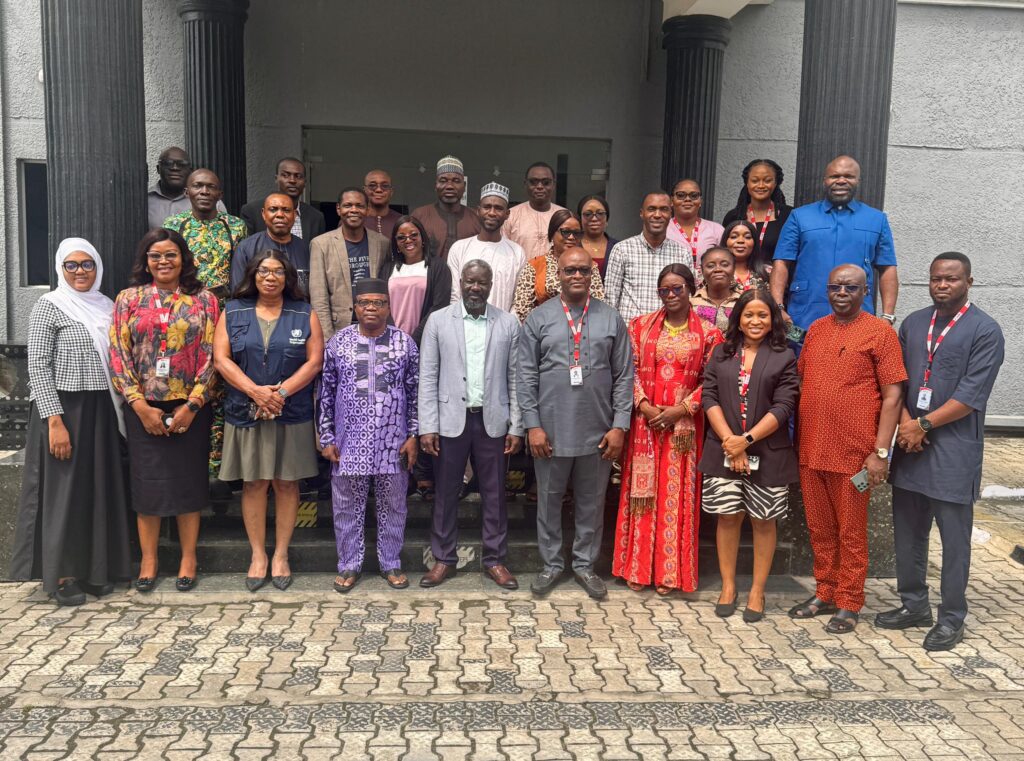
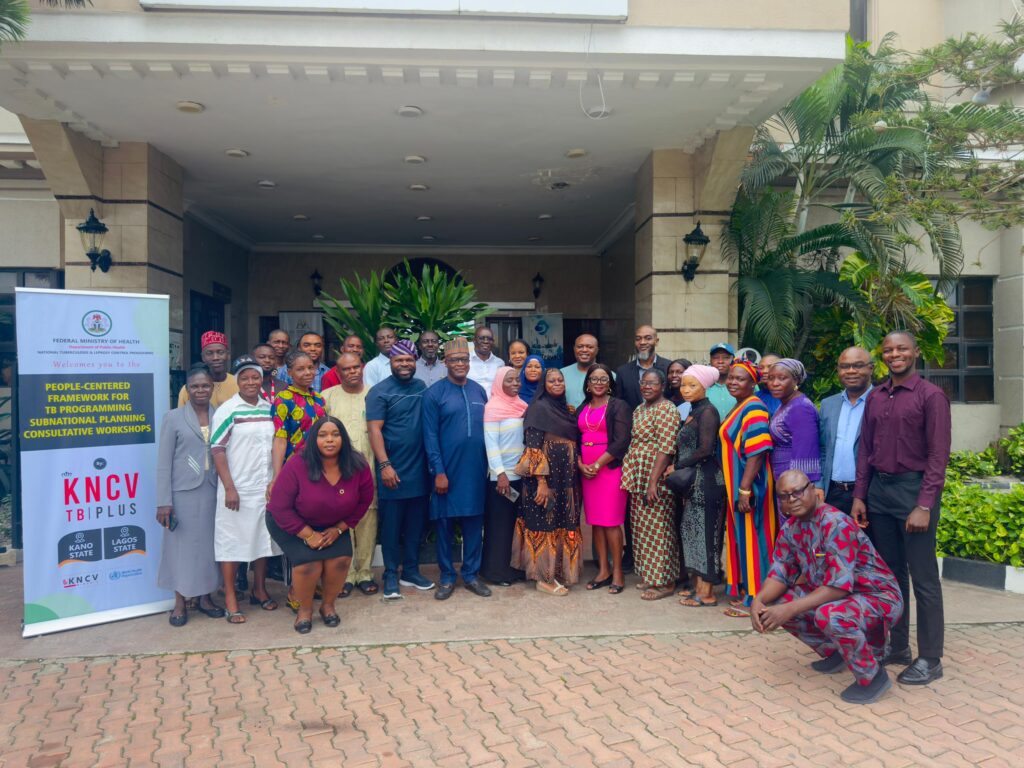
GLOBAL FUND PROJECT

The new funding model (NFM) 3 Global Fund, Public Private Mix (PPM) Grant was awarded to institute of Human Virology Nigeria (IHVN) as the principle recipient (PR) KNCV Nigeria as the sub recipient (SR) for the grant.
The KNCV ATM grant is for 3years and implemented in 5 states. (Akwa Ibom, Benue, Cross river, Plateau, and Rivers state ), aimed at increasing private sector participation inTB control activites. Cumulatively the grant aims to support private health establishment in these 5 states to identify, treat and notify 31,100 TB patients over the 3 years lifespan of the project, as well as maintain a treatment success rate (TSR) of at least 90% of all TB Cases notified.
Activity implementation in all 5 states commenced in 2021, And KNCV works with the following provider types tio actively screen, diagnose and manage TB cases:
- Faith based Hospital and clinics (FBO)
- Private for Profit hospitals and clinics (PFP)
- Private stand alone laboratories
- Patient medicine vendors (PMV)
- Community pharmacies (CP)
GF IMPACT Project
The IMPACT Project, implemented by the Knowledge Network for disease Control and Vigilance (KNCV) Nigeria is a Global Fund project under the GC7 grant where NTBLCP is the PR whereas, KNCV is the technical lead. IMPACT Project means; Implementation of Portable Digital x-ray for Active TB case finding in Nigeria.
IMPACT oversees implementation of 411 digital x-ray platforms deployed in both communities and facilities across the 36 states and FCT with special focus on the hard-to-reach areas, correctional service centres and in special populations e.g. PLHIV. The digital x-ray uses artificial intelligence (AI) and W4SS to profile presumptives while integrating with XMAP a digital x-ray reporting platform for clinical TB diagnosis. The project is driven through collaboration with the NTBLCP, STBLCP, KNCV, all the SR under the IHV-Nigeria C-PPM grant and very close partnership with the CBOs and members of every community where this project is located. To ensure effective utilization and sustainability of these machines, zonal trainings were organized across the six geopolitical zones to build the capacity of implementers involved in community and facility deployment.

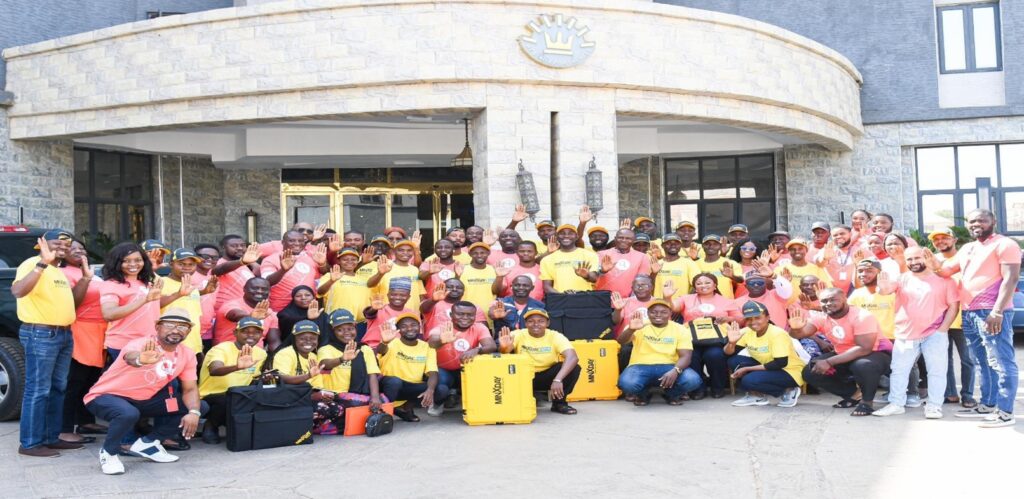
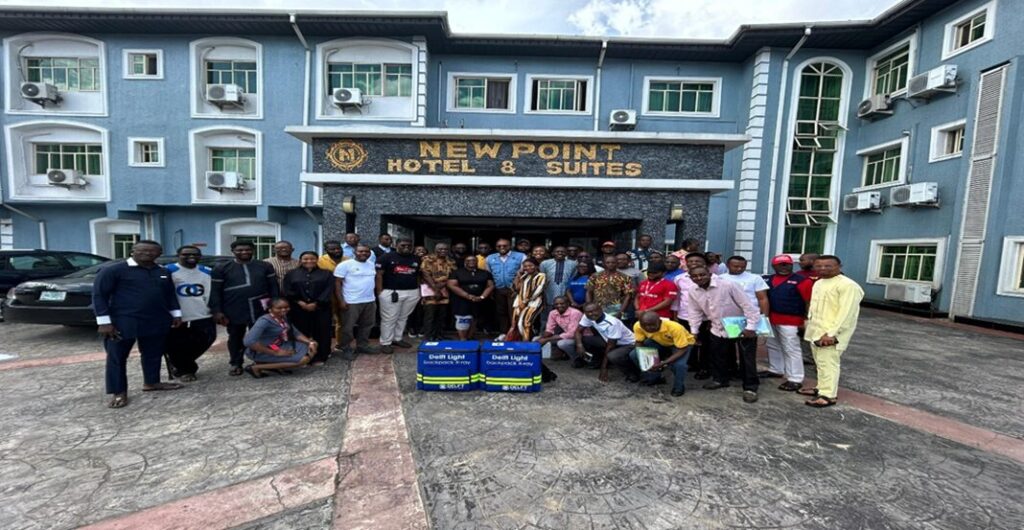

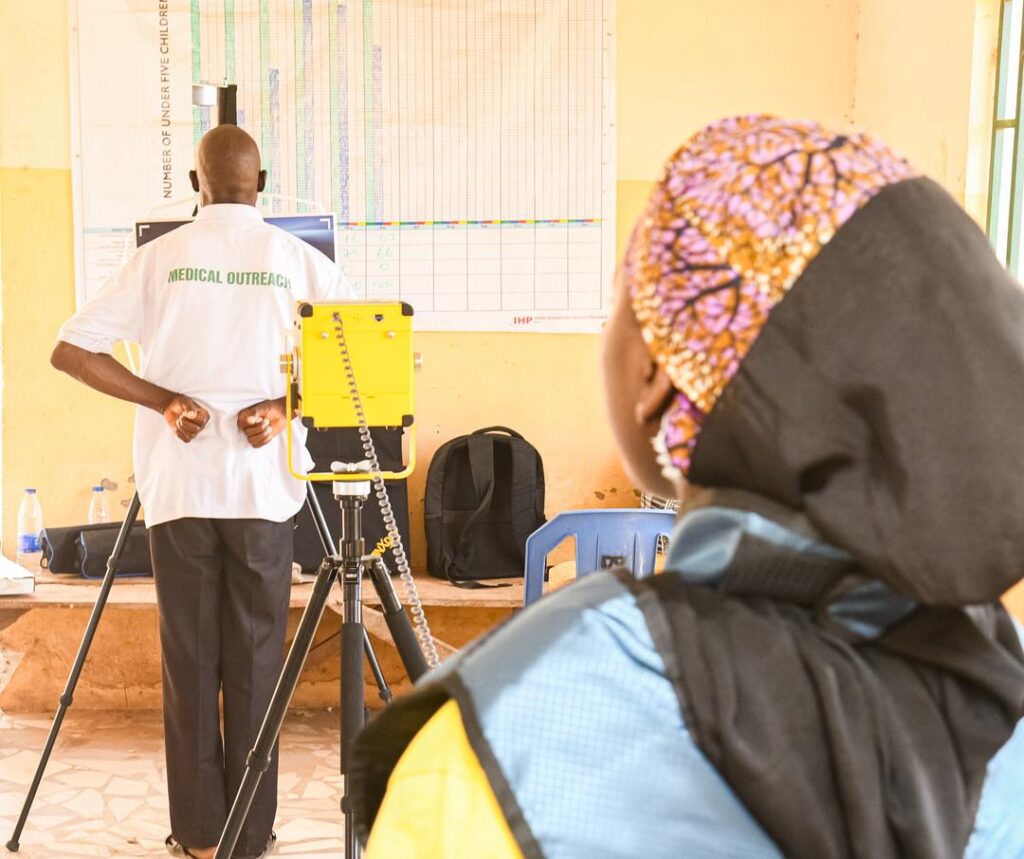
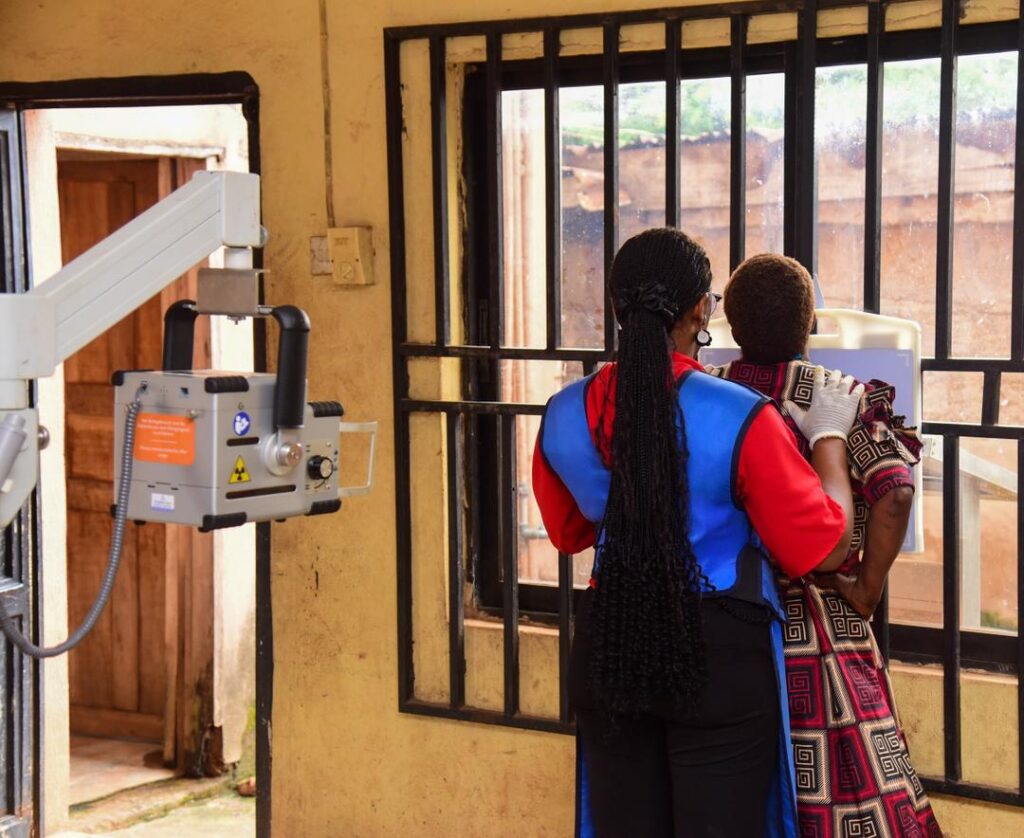
Our Closed-out Projects
JENSEN PAEDIATRIC TB SURGE PROJECT

TB DIAGNOSTIC CONNECTIVITY PROJECT

The Pediatrics TB Surge is a five-month project funded by Jensen Pharmaceuticals through USAID to rapidly increase childhood TB diagnosis in states within the most need. It leverages on the USAID Funded TB LON project and complements the active TB case finding in a manner that address existing gaps in childhood TB case finding including under diagnosis.
The project is being implemented in three Northern states on the USAID funded KNCV Nigeria TB LON 1 & 2 project namely Kano, Katsina, Bauchi and one Southern State Akwa Ibom. These are high TB burden states with a combination of three or more of the following: large population density, high incidence of under nutrition, high number of nutrition clinics availability of diagnostic facilities, high number of Children on the streets, high TB yield but less than 7% childhood TB, Large number of slums, high number of public schools.
Paediatric TB Surge activities include Expansion of Childhood TB Active Case Finding (ACF) to schools, expanding coverage of ACF in Nutrition, immunization and child health clinics; support of childhood TB targeted community TB case finding and improving access to diagnostic using based Xpert test and Chest Xray.
It is expected that these activities will close the gap between estimated and notified childhood TB cases in implementing states.

This one year project is funded by Stop TB Partnership with the aim to introduce and strengthen the use of the Aspect connectivity solution for TB diagnostic instrument networks in Nigeria.
The project will be implemented by KNCV Nigeria. The WHO Global TB Programme has strongly advocated for countries to adopt diagnostics connectivity solutions to make optimal use of the data produced by newer diagnostic instruments that produce digital data.
The 2016 WHO framework of indicators and targets for laboratory strengthening under the End TB strategy includes as a cored indicator the establishment of diagnosis connectivity solutions to concert all TB diagnostic testing sites that have instruments producing digital data. Under this project KNCV Nigeria will work with the National Tuberculosis Leprosy and Buruli Ulcer Control Programme (NTBLCP) and system one to establish connectivity for 38 Truenat instruments provided under the Stop TB/USAID introducing New Tools Project using the Aspect platform.
TB IMPLEMENTATION FRAMEWORK AGREEMENT (TIFA)

- TB Contact investigation using Spot-to-tent onion Model (TBCI-STOM)
- Social franchising as a sustainable tool for TB contact investigation in the private sector (SOFT_CIP)
These are two TIFA Tuberculosis Implementation Framework Agreement projects being implemented by KNCV Nigeria. TIFA is part of USAID’s Global Accelerator to End TB. It is a five year initiative (2019-2024) that supports USAID Mission efforts to strengthen host government commitment in the fight against TB by increasing country ownership and accountability to accelerate progress toward TB eradication. TIFA issues TB Commitment grants (TCG) as its funding mechanism.
- TB Contact investigation using Spot-to-tent Onion Model (TBCI-STOM) The KNCV TBCI STOM is a 1-year TIFA TCG for contact investigation. The overall purpose of TBCI STOM is to improve systematic contact investigation of bacteriologically diagnosed index TB Patients using technology, via Competency Based Training of Community Health Workers (CHWs) who implement a novel spot-to-tent onion model as an effective method for the timely diagnosis of TB patients and provision of TB preventive treatment (TPT) to eligible contacts, Collaborating with NTP the grants is implemented in Akwa-Ibom state which is one of the USAID-funded TB LON project states with supported activities on the project including development of policy documents and tools for contact tracing: capacity building of Community Health care workers (CHWs) on contact investigation through Competency Based Training approach, Contact investigation of bacteriologically positive index TB cases; community case finding within 2km radius of index patient location through the spot to tent onion model and scale up of preventive Treatment (TPT).
- Social franchising as a sustainable Tool for TB contact investigation in the private sector (SOFT_CIP) The SOFT-CIP is a 1-year TIFA grant which leverages on the structures set up by the TB LON project In Kano state to improve contact investigation and TPT uptake in private health establishments utilizing social franchising. The objectives of the project are:
- To increase the coverage of contact investigation among targeted private healthcare facilities in Kano State from 25% to 95%.
- To identify all eligible contacts for TPT among the contacts of the index TB Patients who were investigated.
- To increase the uptake of TPT among eligible contacts of infections TB cases notified from private health facilities in Kano state from 4% to 25% within a year it is hoped that with the implementation of this grant the health system would be strengthened, while ensuring that underserved populations have access to high quality TB services in cost effective and timely manner.
The COVID Vaccination Acceleration Project

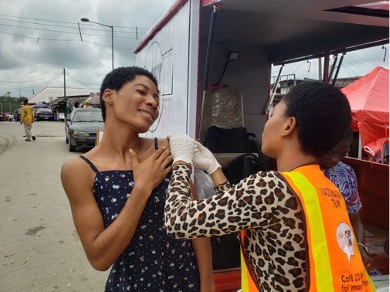
The COVID -19 Vaccination Acceleration project being implemented in eleven states. 1. Anambra 2. Imo 3. Taraba 4. Kano 5.Kaduna 6. Cross River 7. Bauchi 8. Plateau 9. Benue 10. Katsina 11. Nasarawa, has an overall goal of promoting COVID-19 vaccine access, acceptability, and uptake, while strengthening adverse drug reaction feedback and timely response, by leveraging on the ongoing USAID supported Tuberculosis Local Organization Network (TB LON) 1 & 2 project structures. To ensure acceptance and address the challenges posed by vaccine hesitancy, the project strategically integrates the vaccination program within the KNCV Nigeria TB LON community outreach TB active Cases Finding (ACF) intervention while also leveraging on our structure in the supported public and private health facilities. The project has an overall target of reaching 1,454,479 people with full COVID-19 vaccination.
Vaccination across the seven states began in July 2022 and the project has deployed innovative strategies such as mobile vaccinations in institutions such as military and paramilitary barracks, motor parks, churches, mosques, schools to improve access to vaccinations. Another innovative strategy aimed at reaching people in extremely difficult terrain is the deployment of reconfigured tricycles “WOW Keke”. These are to be equipped with portable digital X-ray machine (DLB) and Truenat or TB LAMP devices and to be deployed to distant and hard-to-reach communities to provide integrated health services with COVID-19 vaccination and other reasonable medical concerns as well as provide Routine drugs and screening for chronic illness (Hypertension and Diabetes). Strategies such as reminder call to clients to ensure full vaccination have also been deployed.
The ACE Project

The ACE 6 (Accelerating Control of the HIV Epidemic Cluster 6) Project is being implemented in three states namely Bayelsa, Edo and Lagos states with a consortium of partners led by the Heartland Alliance as the principal recipient and KNCV Nigeria as one of the sub grantees. The project employs a rights-based approach that integrates contextual health systems
strengthening with comprehensive HIV care, including critical services like access to justice and gender mainstreaming.
KNCV Nigeria is a consortium partner in providing technical assistance towards community and facility TB case finding, linkage, and treatment across the three project states.
The Nigeria DATs Project
The Digital Adherence Technologies (DATs) Project is funded by Stop TB Partnership/UNOPS (United Nations Office for Project Services) and implemented by KNCV TB Foundation Nigeria with a consortium of partners – KNCV Tuberculosis Foundation Netherlands and Interra Networks. The DATs project is aimed at comprehensive introduction of digital adherence technologies to support tuberculosis treatment across eight states in Nigeria: Akwa Ibom, Anambra, Benue, Imo, Kaduna, Kano, Nasarawa, and Rivers through two intervention models:
- 99DOTS medication labels – Use medication labels that contain a unique single 3-digit code and the country SMS short code number to track records of daily drug intake by TB patients.
- VOT (Video-observed Therapy) – Use SureAdhere mobile app to record videos of drug intake by TB patients, enabling remote adherence monitoring through video technology by the Healthcare workers.
The project is the first TB treatment adherence technology to be implemented within the National TB program in Nigeria. It is focused on an integrated deployment approach, with different DAT options for patients and one unified application for the healthcare worker. The different DAT model helps to remind patients to take their medications, facilitate digital observation of pill-taking, compile dosing histories, triage patients based on their level of adherence, thereby facilitating the provision of individualized care by the TB program based on patients risks. The duration of the project is one year.
